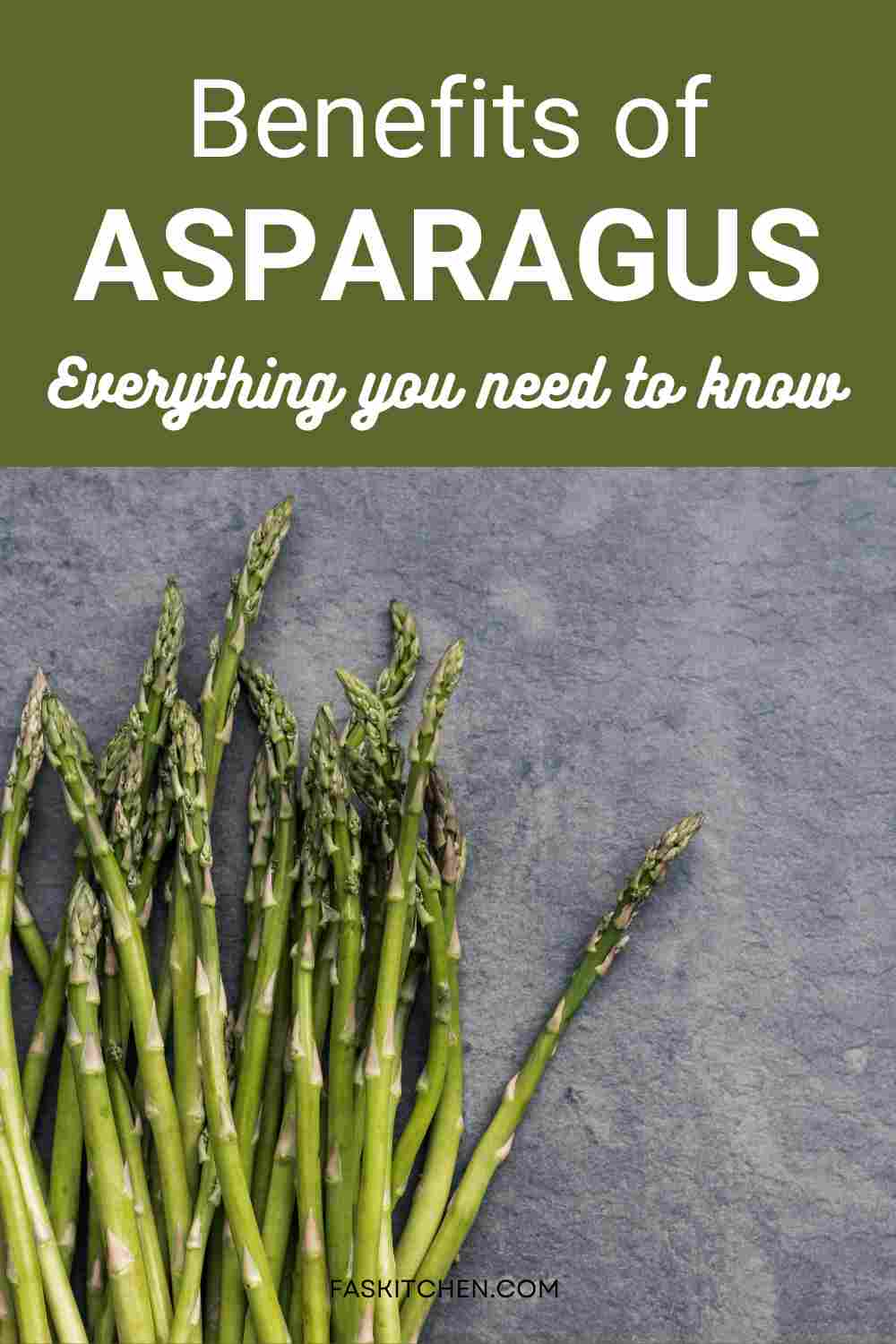Is Asparagus Good For You? Exploring The Nutritional Powerhouse

Table of Contents
Asparagus: A Nutritional Profile
Asparagus boasts a surprisingly impressive nutritional profile, making it a valuable addition to a healthy diet. One cup of cooked asparagus provides a significant amount of essential vitamins and minerals. Let's break down the macronutrients and micronutrients:
-
Macronutrients: Asparagus is low in calories and fat, making it an excellent choice for weight management. It contains a moderate amount of carbohydrates, primarily in the form of fiber, and a small amount of protein. The fiber content is particularly noteworthy for its contribution to digestive health.
-
Micronutrients: Asparagus is rich in various vitamins and minerals, including:
- Vitamin A: Important for vision, immune function, and cell growth.
- Vitamin C: A potent antioxidant that supports the immune system and collagen production.
- Vitamin K: Crucial for blood clotting and bone health.
- Folate (Vitamin B9): Essential for cell growth and development, particularly important during pregnancy.
- Potassium: Helps regulate blood pressure.
- Manganese: Contributes to bone health, wound healing, and metabolism.
-
Specific Nutrient Benefits:
- Fiber: Promotes healthy digestion, prevents constipation, and feeds beneficial gut bacteria.
- Folate: Crucial for cell division and growth, vital for pregnant women to prevent neural tube defects in developing fetuses.
- Vitamin K: Essential for blood clotting and maintaining strong bones. A deficiency can lead to increased bleeding risk.
- Potassium: Helps regulate fluid balance and blood pressure, reducing the risk of hypertension.
-
Comparison to Other Vegetables: While many green vegetables offer similar benefits, asparagus stands out due to its high concentration of folate and its unique combination of vitamins and minerals. It compares favorably to broccoli and spinach in terms of vitamin content, but its distinct flavor profile makes it a versatile addition to various dishes.
Health Benefits of Asparagus Consumption
The nutritional richness of asparagus translates to a wide range of potential health benefits. Let's explore some of the key advantages:
Improved Digestive Health
Asparagus is a great source of dietary fiber, acting as a prebiotic to feed beneficial bacteria in your gut. This improved gut microbiome leads to better digestion, reduced bloating, and a decrease in constipation. Steaming or lightly grilling asparagus helps retain its fiber content. Avoid overcooking, which can diminish its nutritional value.
Boosted Immune System
The high vitamin C content in asparagus, along with other antioxidants, bolsters your immune system. Antioxidants combat free radicals, protecting your cells from damage and reducing the risk of infections. Adding asparagus to your diet regularly can contribute to improved immunity.
Potential Cancer-Fighting Properties
Research suggests that asparagus may possess anti-cancer properties. Compounds like glutathione, found in asparagus, are potent antioxidants that may help protect against cellular damage linked to cancer development. It is crucial to note that more research is needed to confirm these findings, and asparagus should not be considered a cancer cure. However, incorporating it into a healthy diet as part of a comprehensive approach to cancer prevention is a worthwhile consideration. (See references for more information).
Heart Health Benefits
The combination of potassium, fiber, and folate in asparagus contributes to improved heart health. Potassium helps regulate blood pressure, fiber lowers cholesterol, and folate contributes to overall cardiovascular health. However, remember that asparagus alone is not a cure-all; maintaining a balanced diet and lifestyle is crucial for optimal heart health.
How to Incorporate Asparagus into Your Diet
Adding asparagus to your diet is easier than you might think! Here are some tips:
- Recipe Ideas: Asparagus is incredibly versatile. Use it in salads, soups, stir-fries, omelets, or simply roast it with a drizzle of olive oil and salt.
- Selection and Storage: Choose asparagus spears that are firm, bright green, and without wilting. Store them in the refrigerator, upright in a glass of water, for optimal freshness.
- Cooking Methods: Steaming, grilling, and roasting are excellent methods for preserving asparagus's nutrients. Overcooking can diminish its nutritional value and flavor.
Conclusion
So, is asparagus good for you? The answer is a resounding yes! Asparagus offers a wealth of nutritional benefits, supporting digestive health, boosting the immune system, potentially contributing to cancer prevention, and promoting heart health. Its high fiber, vitamin, and mineral content makes it a true nutritional powerhouse. Start reaping the rewards of this nutritional powerhouse – add asparagus to your shopping list today and discover the delicious and healthy ways you can enjoy this amazing vegetable!

Featured Posts
-
 Yueksekten Duesme Nevsehir Deki Kayma Kazasi Detaylari
Apr 30, 2025
Yueksekten Duesme Nevsehir Deki Kayma Kazasi Detaylari
Apr 30, 2025 -
 Ace Power Promotions Boxing Seminar Date And Details March 26th
Apr 30, 2025
Ace Power Promotions Boxing Seminar Date And Details March 26th
Apr 30, 2025 -
 Trumps Approval Rating Plunges A Look At The First 100 Days
Apr 30, 2025
Trumps Approval Rating Plunges A Look At The First 100 Days
Apr 30, 2025 -
 Uk Eurovision 2025 Act Revealed Bbc Radio Announcement
Apr 30, 2025
Uk Eurovision 2025 Act Revealed Bbc Radio Announcement
Apr 30, 2025 -
 Vusion Group Amf Cp 2025 E1029754 A Detailed Breakdown Of The Document
Apr 30, 2025
Vusion Group Amf Cp 2025 E1029754 A Detailed Breakdown Of The Document
Apr 30, 2025
